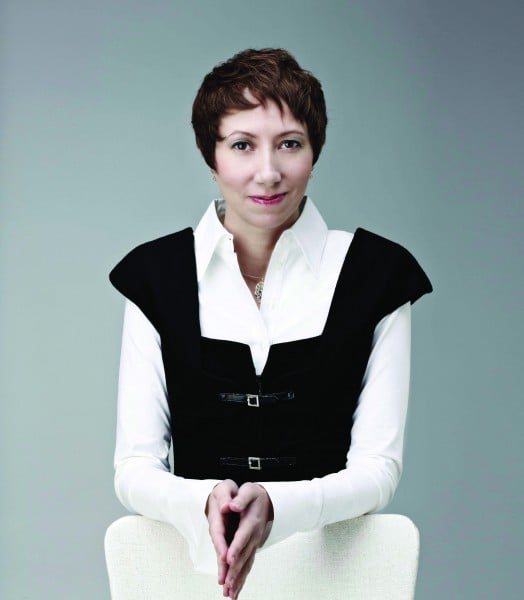“Being a man is a great privilege, but it’s also tremendous pressure,” a young Egyptian man told writer Shereen El-Feki recently. Such a comment may not go down well for many women battling for gender equality across the world, but for the award-winning author it’s an issue that has been ignored for too long.
“It doesn’t seem like that on the surface, but the men here are under a lot of tension,” she explains. “It’s great if you are at the top of the pyramid, but if you are somewhere down below, then it’s not so good. There are lots of problems for young men because all their conventional hallmarks such as getting married, starting a family and moving out of your parents’ place are very difficult to accomplish in parts of the Middle East because there are no jobs. A lot of the bad behaviour of men, not to excuse it but to explain it, comes from the fact that these young men are under enormous pressure economically, in the family and it’s not a surprise when they behave badly.”
Born to Egyptian and British parents and raised in Canada, El Feki is certainly no stranger to awkward subjects. Her revolutionary 2013 book Sex and the Citadel: Intimate Life in a Changing Arab World delved deep into the gender and sexual politics underpinning the Middle East, treading unworn ground over a subject deemed taboo across a largely conservative region. And though her extensive research into Sex and the Citadel focussed largely on women, “because they had more interesting things to say,” it occurred to her that “we don’t actually know much about men in the region apart from their public roles as fathers, sons, we don’t know very much about their inner workings”. Now as international headlines team with unflattering portrayals of Arab men – from the New Year’s Eve Cologne attacks to Islamic State – El Feki believes it is time to examine the apparent ‘crisis of masculinity’ that not only ‘demonises’ the region’s male population, but hinders attempts to reach true gender equality.
“The idea of men and masculinity is very well studied in the West and Europe, and also in most other parts of the global south, but we don’t have much of it here yet,” El Feki says. “And we want to try and move this forward and really try to engage men with gender equality. You can have all the schemes in the world to push women in politics and in business, but if you don’t bring men along with us, then how far are you going to get? So this research is to better understand it, because you can’t really change behaviour unless you understand it. And we don’t have this information.”
Hoping the research will lead to her next book, El Feki and her team plan to interview and survey 10,000 men and women in Morocco, Egypt, Palestine (including Gaza) and Lebanon asking specifically what it means to be a man today. As with her previous work, in which the metaphor of a citadel was used to represent marriage, El Feki already has some ideas in mind to symbolise her upcoming research.
“What I could call it is ‘The Thin Red Line’ actually because it can be in this region, and globally, men walk along a very tight line of what it means to be a man,” she explains. “Women have so many options in life, though often it doesn’t seem that case. If I look at my own family – and of course we are at a certain socio-economic level – but if we look at the women in my family in Egypt, women can go to university or not. We can get married or not, though most women choose to get married; most women can choose to have kids or not, but most women choose to have kids and whether they can work or not. And the lives in my generation are very different from those of my grandmother or great-grandmother.
“But when I look at the men in my family, they have far fewer choices. You cannot say for example, ‘I want to be a choreographer’ or a ‘sculptor’, you’ve got to become a doctor, engineer, pharmacist, so there’s a narrow range of options. And you have to get married and you are expected to start a family. And you walk this very narrow line and their lives are not very different from the lives of my father or my grandfather, but yet the world has changed so much. For men, if you don’t conform to this really, really narrow line of masculinity, you can fall off and there’s virtually no tolerance. It’s like a tight-rope.”
She adds: “Today men have a really bad rep, whether it’s the migrants in Europe, Islamic State is not helping the reputation of young Arab men, but the men are not monsters. You never hear about the good men who helped their sisters find independence or encouraged their wives to work or want their daughters to go to university – the quiet man. And as I keep talking about this looming crisis of masculinity in the Arab region, what is going to happen when we see the rise of women? We’ll see how that plays out.”










